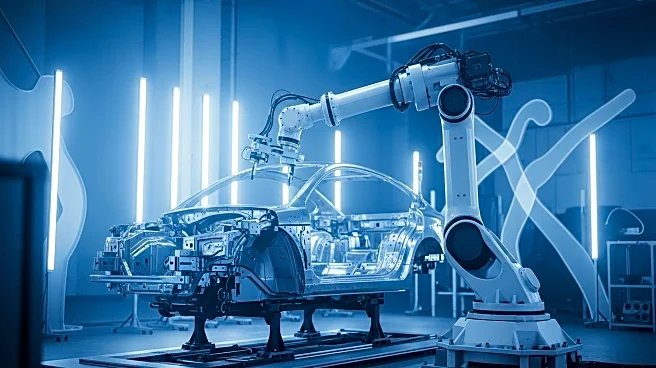What's Happening?
Hyundai Motor Group has announced plans to proceed with a $2.7 billion expansion of its Georgia plant, despite recent immigration raids that delayed the startup of an electric vehicle battery plant at the site. The expansion aims to increase production capacity at the Ellabell site by 200,000 vehicles over the next three years, reaching a total of 500,000 vehicles annually. This move is part of Hyundai's broader strategy to invest $5 billion in the United States. The company plans to produce 10 models of electric and hybrid vehicles in Georgia, up from the current two models. Hyundai's commitment to the U.S. market includes plans to make 80% of vehicles sold domestically by 2030, with a focus on electric and hybrid models.
Why It's Important?
Hyundai's investment in Georgia is significant for the U.S. automotive industry, as it underscores the growing importance of electric vehicles and hybrid technology. The expansion is expected to create thousands of jobs and boost local economies, particularly in Georgia. The diplomatic tensions following the immigration raid highlight the complexities of international business operations and the need for careful navigation of geopolitical issues. Hyundai's commitment to increasing domestic production aligns with U.S. policy goals to strengthen manufacturing and reduce reliance on foreign imports, potentially benefiting American workers and consumers.
What's Next?
Hyundai plans to open the delayed battery plant in the first half of 2026, with efforts underway to resolve visa issues for South Korean employees. Georgia officials, including Governor Brian Kemp, are optimistic about the state's ability to attract foreign investment despite recent challenges. The expansion is part of Hyundai's global strategy to increase production by 1.2 million vehicles annually, with additional capacity planned in India, South Korea, and other regions. The company is also investing in robotics and extended-range electric vehicles, aiming to launch new models by 2027.











